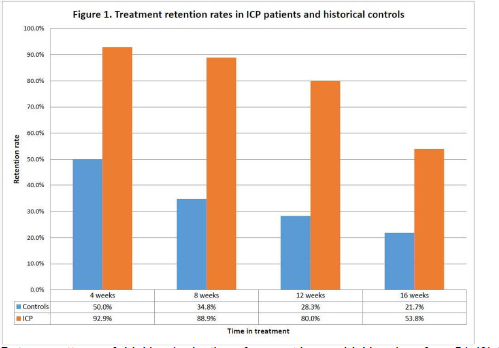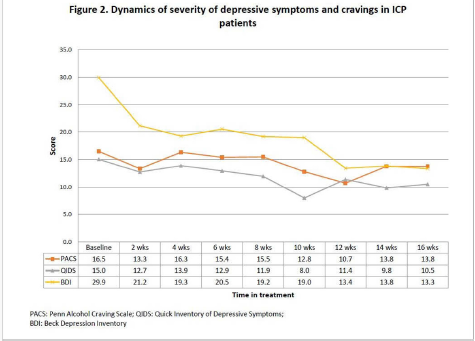Topic: EPV01 – e-Poster 01: Addictive Behaviours
Article: 1066
Combined Use of Varenicline and Cognitive Behavioral Treatment for Nicotine Dependence in Patients Admitted to a Psychiatric Clinic in Rio De Janeiro, Brazil-improved Technique.
-
- Published online by Cambridge University Press:
- 15 April 2020, p. 1
-
- Article
-
- You have access
- Export citation
Article: 1067
The Adverse Psychiatric Consequences of Recreational Stimulant Drugs Such as Methamphetamine, Cocaine, Ecstasy/mdma, and Mephedrone: a Unified Psychobiological Explanation.
-
- Published online by Cambridge University Press:
- 15 April 2020, p. 1
-
- Article
-
- You have access
- Export citation
Article: 1068
Do Cannabis and Cannabinoids Have a Psychofarmalogically Therapeutic Effect?
-
- Published online by Cambridge University Press:
- 15 April 2020, p. 1
-
- Article
-
- You have access
- Export citation
Article: 1070
Preventive Strategies for Medically Induced Drug Addiction:
-
- Published online by Cambridge University Press:
- 15 April 2020, p. 1
-
- Article
-
- You have access
- Export citation
Article: 1071
Comparing Psychological Reaction of Children Having Addict and Non Addicted Parents
-
- Published online by Cambridge University Press:
- 15 April 2020, p. 1
-
- Article
-
- You have access
- Export citation
Article: 1073
Children of Alcohol and Drug Addicted Parents: Risks, Needs, and Results of a Selective Prevention Study.
-
- Published online by Cambridge University Press:
- 15 April 2020, p. 1
-
- Article
-
- You have access
- Export citation
Article: 1074
Is It Advisable to Use the Quantitative Version of At.9 to Evaluate Alexithymia When Opting for a Multi-method Evaluative Approach?
-
- Published online by Cambridge University Press:
- 15 April 2020, p. 1
-
- Article
-
- You have access
- Export citation
Article: 1076
Methadone for the Treatment of Prescription Opioids Dependence. a Retrospective Cohort Study
-
- Published online by Cambridge University Press:
- 15 April 2020, p. 1
-
- Article
-
- You have access
- Export citation
Article: 1077
The Level of Internet Addiction Positively Associated with the Severity of Depression and Anxiety Amongst Secondary School Students in Bosnia and Herzegovina
-
- Published online by Cambridge University Press:
- 15 April 2020, p. 1
-
- Article
-
- You have access
- Export citation
Article: 1078
Mechanism of Brain Atrophy in Alcoholics
-
- Published online by Cambridge University Press:
- 15 April 2020, p. 1
-
- Article
-
- You have access
- Export citation
Article: 1079
Impact of Spiritual- Religious Group Therapy On Mental State of Inpatients with Methamphetamine Induced Psychotic Disorder
-
- Published online by Cambridge University Press:
- 15 April 2020, p. 1
-
- Article
-
- You have access
- Export citation
Article: 1080
Physical Status in Psychiatric Patients with Substance Abuse
-
- Published online by Cambridge University Press:
- 15 April 2020, p. 1
-
- Article
-
- You have access
- Export citation
Article: 1081
Substance Abuse Among Prisoner in Erbil/Iraq
-
- Published online by Cambridge University Press:
- 15 April 2020, p. 1
-
- Article
-
- You have access
- Export citation
Article: 1082
Psychogenetic Markers of Alcoholism Among Indigenous People From Far East of Russia
-
- Published online by Cambridge University Press:
- 15 April 2020, p. 1
-
- Article
-
- You have access
- Export citation
Article: 1083
Opiates and Psychosis: a Case of Psychosis After Methadone Withdrawal
-
- Published online by Cambridge University Press:
- 15 April 2020, p. 1
-
- Article
-
- You have access
- Export citation
Article: 1084
New Technology to Support Abstinence From Alcohol, Predict Relapse and Reduce Out-patient Costs.
-
- Published online by Cambridge University Press:
- 15 April 2020, p. 1
-
- Article
-
- You have access
- Export citation
Article: 1085
Possible Use of Paliperidone Palmitate in Ketamine Addiction.
-
- Published online by Cambridge University Press:
- 15 April 2020, p. 1
-
- Article
-
- You have access
- Export citation
Article: 1086
Online Gambling, Impulsivity and Personality Traits: an Italian Sample
-
- Published online by Cambridge University Press:
- 15 April 2020, p. 1
-
- Article
-
- You have access
- Export citation
Article: 1087
Academic Outcomes and Drug Addiction Among Young Moroccan Students
-
- Published online by Cambridge University Press:
- 15 April 2020, p. 1
-
- Article
-
- You have access
- Export citation
Article: 1088
Early Outcomes of the Integrated Care Pathway for Concurrent Major Depressive Disorder and Alcohol Dependence
-
- Published online by Cambridge University Press:
- 15 April 2020, p. 1
-
- Article
-
- You have access
- Export citation



